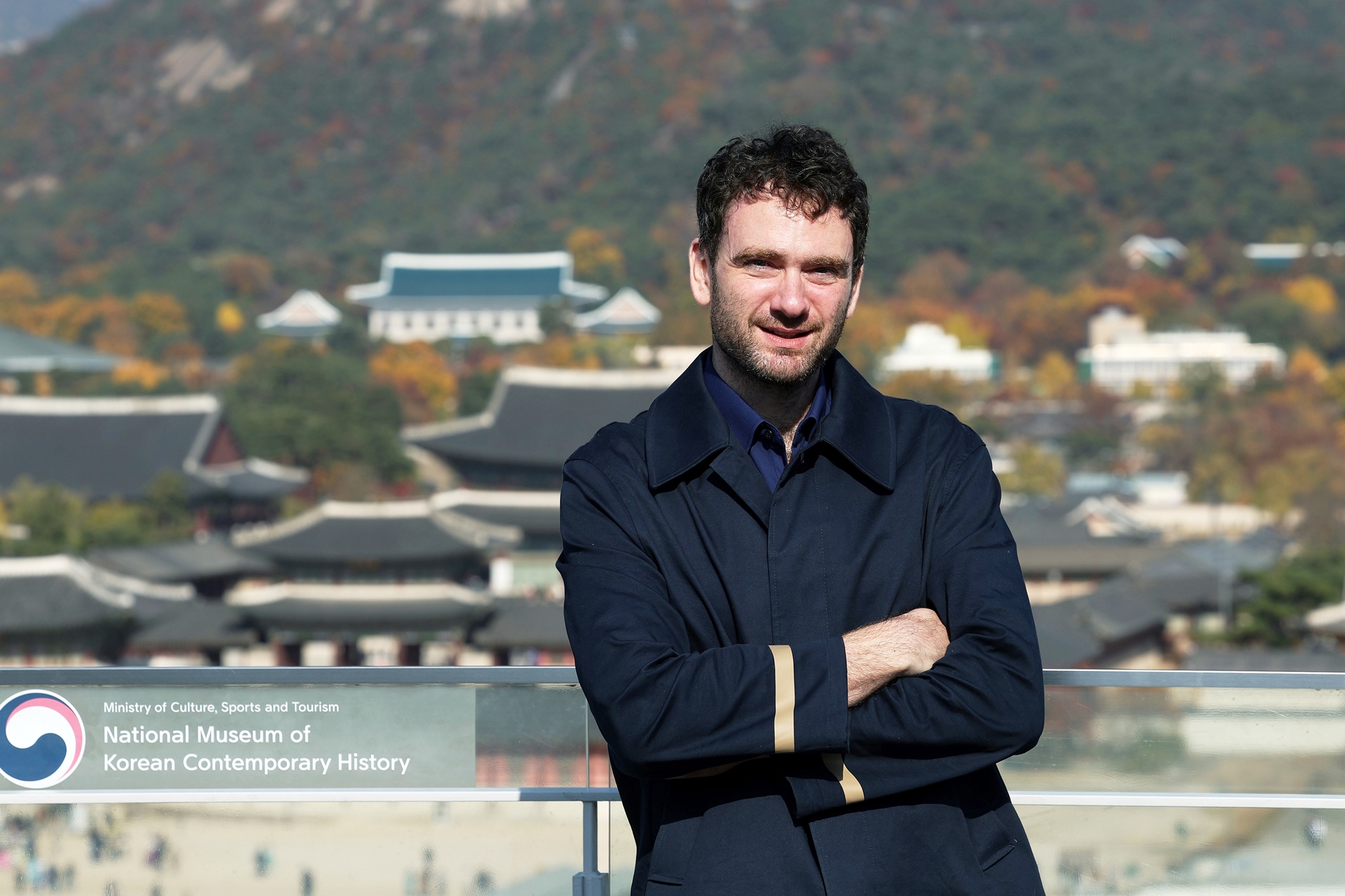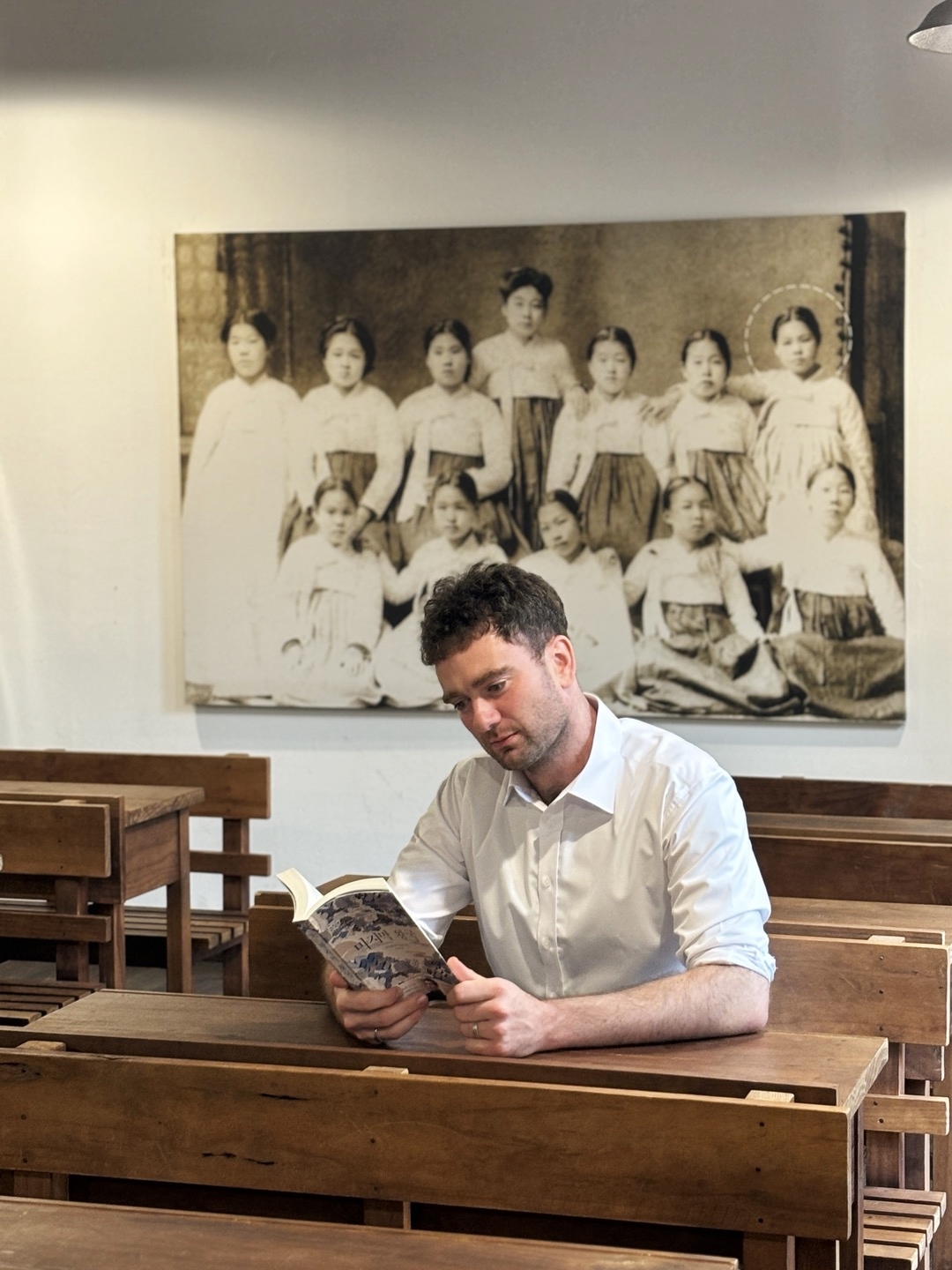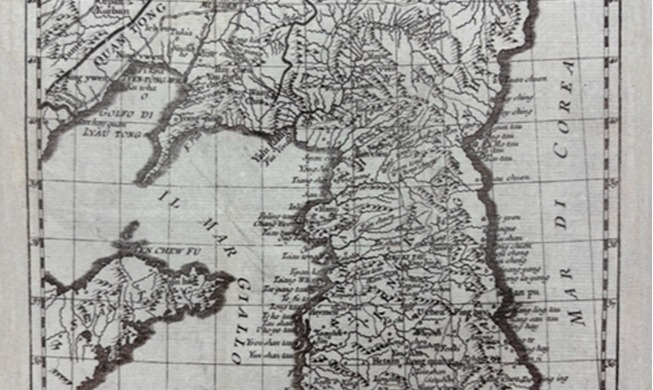- 한국어
- English
- 日本語
- 中文
- العربية
- Español
- Français
- Deutsch
- Pусский
- Tiếng Việt
- Indonesian

Daniel Tudor, a Seoul-based British author who has written several nonfiction books on Korea, on Nov. 13 poses for a photo on the roof of the National Museum of Korean Contemporary History in Seoul, with Gyeongbokgung Palace shown in the background. (Lee Jun Young)
By Xu Aiying
The historical novel "The Last Prince" by author Daniel Tudor brings renewed attention to Prince Crown Imperial Ui (1877-1955), aka Yi Kang, and women's independence activist Kim Ran-sa (1872-1919).
"If there's one thing I hope for, I want readers to grow curious about the historical figures Yi Kang and Kim Ran-sa after reading my novel," Tudor said in a Nov. 13 interview with Korea.net. "I wrote this with the hope that more people will remember forgotten figures in history and shed light on them."
A British expat who has worked in writing, business and journalism, he has written about Korean politics and society and in 2017 served as an adviser to the foreign media team of Cheong Wa Dae, the presidential office.
Yi and Kim are relatively unknown to even Koreans, so why was Tudor interested in them? His idea for his novel started in 2012, when he met Yi Seok, the son of Yi Kang, in Jeonju, Jeollabuk-do Province, when Tudor was the Korea correspondent for the British weekly magazine The Economist.
Tudor had always wanted to write a book about the crown prince's turbulent life, but kept putting it off due to his busy schedule. The writer began working on the novel in late 2019, and his focus on it grew after the COVID-19 pandemic prevented him from going outside.
For five years, he conducted extensive research both in Korea and abroad, held interviews, and did reporting and writing.
On the surprising nature of covering Korean history from a foreign perspective, Tudor said, "I think I wouldn't have been interested in this kind of history if I were Korean," adding, "Because it's history from a non-Korean perspective and due to my background as a foreign journalist, curiosity and inquisitive mind, I was able to write in a more interesting manner."

Daniel Tudor reads his new historical novel "The Last Prince." (Daniel Tudor)
"The Last Prince" sheds light on the lives of those who lived through periods of rapid social change and raises the question of what should not be forgotten.
"The protagonist Yi Kang had many flaws and shortcomings, but found his purpose in life after meeting independence activists," Tudor said. "During that process, I saw Yi as a person who was growing and awakening."
"His life wasn't a heroic epic but a story of universal human growth that anyone can empathize with, so anyone can read and relate to this book."
Kim Ransa is another key character in the novel, boldly overcoming the limits on women at the time by enrolling in Ewha Haktang, which led to the foundation of today's Ewha Womans University, when the school forbade marriage by its students. She was also the nation's first woman to study in the U.S.
Tudor called her someone "unfairly forgotten in history."
"Everyone knows (national martyr) Yu Gwan-sun but few know that Kim was her teacher who taught Yu the spirit of the independence movement," he added. "I made Kim a character in the novel in the hope that her name and Yi's won't be forgotten."
The author, however, asked readers to consider his book fiction and not a historical resource, calling it a work of his imagination.
Tudor wrote the book in English but put out the Korean-language edition first. Seeking to publish his work in the English-speaking world, he said the English-language version will come out as early as next year.
So what is next for the Korea-watching author? As the father of a daughter, Tudor said he plans to cover Korea's low birth rate in his next book.
"I grew interested in the issue of the low birth rate after I became a father," he said. "To cover the low birth rate not only in Korea but also elsewhere, I've begun interviewing experts such as anthropologists, economists and sociologists from various countries."
